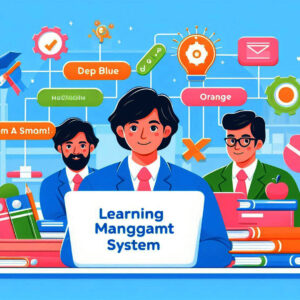Description
Education Management Services (EMS) encompass a wide range of services aimed at improving the efficiency, effectiveness, and overall quality of educational institutions and systems. These services can be broadly categorized as:
1. Education Management Systems (EMS) / Software:
- These are technology solutions designed to manage various aspects of educational institutions, including:
- Student Information Management: Centralized databases for student records, attendance, academic history, etc.
- Faculty Management: Managing teacher records, qualifications, assignments, and performance.
- Fee Management: Handling fee collection, payment plans, and generating reports.
- Attendance Management: Tracking student and staff attendance.
- Timetable and Class Scheduling: Creating and managing class schedules and exams.
- Library Management: Cataloging resources, tracking borrowing, and managing memberships.
- Examination and Grading: Automating exam processes, calculating results, and managing gradebooks.
- Communication Tools: Platforms for communication between students, teachers, parents, and administrators.
- Learning Management Systems (LMS) Integration: Some EMS integrate with or offer LMS features for online learning and content delivery.
2. School Management Services:
- These services often involve external organizations taking on the operational responsibilities of schools. This can include:
- Daily Operations Management: Overseeing the day-to-day functioning of the school.
- Regulatory Compliance: Ensuring adherence to educational regulations and obtaining necessary approvals.
- Governance Support: Assisting with the establishment and functioning of governing bodies.
- Infrastructure and Project Management: Managing existing facilities and planning for expansion.
- Human Resource Management: Recruitment, training, appraisal, and management of staff.
- Curriculum Development and Planning: Designing and implementing academic and extracurricular programs.
- Student Management: Admissions, counseling, and student support services.
- Financial Management: Budgeting, fee collection, and accounting.
- School Operations: Managing areas like transportation, canteen, security, and the library.
- Parent Engagement: Facilitating communication and involvement of parents.
- Branding and Marketing: Developing and implementing strategies to promote the school.
3. Educational Consulting and Advisory Services:
- These services provide expertise and guidance to educational institutions and governments on various aspects of management and improvement. This can include:
- Strategic Planning: Developing long-term goals and strategies for educational development.
- Academic Audits and Reviews: Evaluating the effectiveness of academic programs and teaching practices.
- Teacher Training and Professional Development: Designing and delivering programs to enhance teacher skills.
- Curriculum Design and Implementation Support: Assisting with the development and adoption of new curricula.
- Assessment and Evaluation Strategies: Helping to develop effective methods for measuring student learning.
- Data Analysis and Reporting: Providing insights based on educational data to inform decision-making.
- Technology Integration Planning: Assisting with the adoption and effective use of technology in education.
4. Government and Non-profit Organizations:
- Organizations like UNESCO play a significant role in providing technical assistance and capacity development services in education management at a national and international level. This includes:
- Developing standards, methodologies, and tools for education management.
- Supporting the development of Education Management Information Systems (EMIS).
- Providing training and resources to strengthen education management capacities.
In summary, Education Management Services are crucial for ensuring that educational institutions are well-organized, efficiently run, and focused on delivering quality education to students. They leverage technology, expert knowledge, and best practices to address the complex administrative and operational challenges within the education sector.



















Reviews
There are no reviews yet.